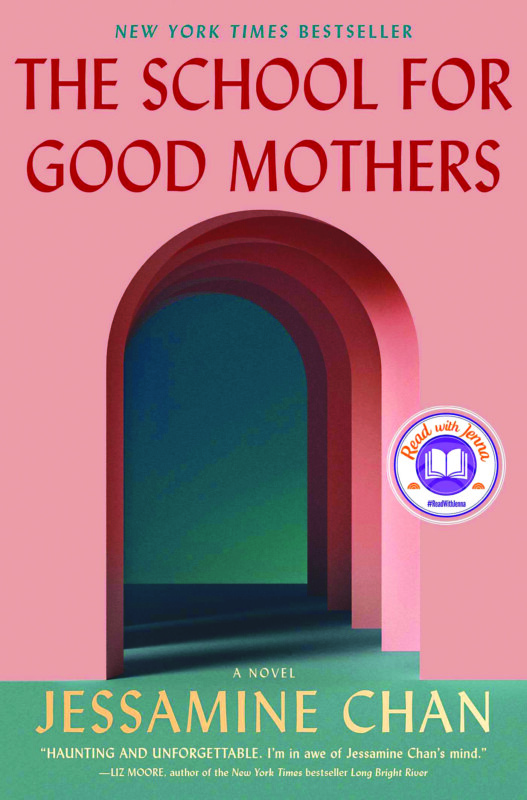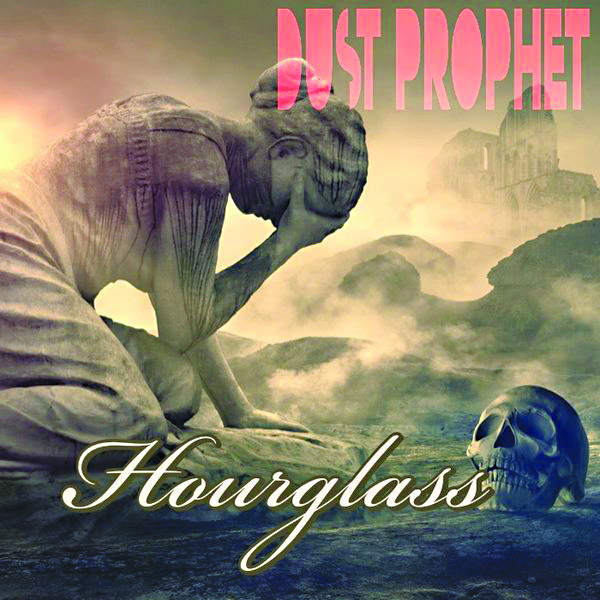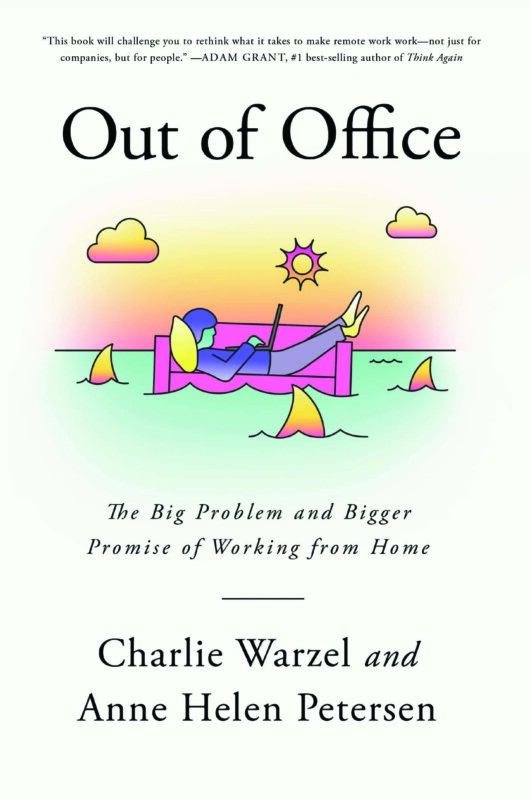The School for Good Mothers, by Jessamine Chan (Simon & Schuster, 325 pages)
Parents are more likely to have a child taken away from them by the government than by a stranger. Yet for most of us, Child Protective Services enters our consciousness only when we hear of its failure.
An alternate world is presented in Jessamine Chan’s debut novel, The School for Good Mothers, in which the state vastly oversteps its bounds and is given terrifying power over families when someone is accused of child neglect or abuse.
The story is about a single mother, Frida, who, overcome by exhaustion and stress, makes the shockingly bad decision to leave her toddler alone while she goes to get coffee and pick up some forgotten work at the office. Neighbors call the police when the child, named Harriet, starts crying.
When the police call Frida to say they have her child, she is overcome with guilt and rushes to the station, expecting to pick up her child after sufficient explanation and groveling. Instead, she finds herself in a cascading nightmare.
The police let Frida’s ex-husband, Gust, take Harriett to the home he shares with his young girlfriend. They tell Frida that she will have to convince Child Protective Services of her worthiness before she can have her child again. This isn’t just today’s Social Services, however, but a 1984-ish imagining of a state darkly empowered by surveillance technology and the belief that the state knows more about proper child-rearing than parents.
Soon after Harriett goes home, two men from Child Protective Services arrive to inspect her home and outfit it with cameras. They will be watching, even without Harriett in the home, in order to assess Frida’s fitness to mother her child. They explain that artificial intelligence will use the footage to analyze her feelings, that this will be fair because it eliminates human error.
Frida accepts this because she has no choice; it’s a condition for getting her child back. But so are monitored visits with Harriett with a social worker watching — visits in which she is expected to play with her toddler in her ex-husband’s house, the same daughter who now feels abandoned by her mother.
Not surprisingly, these visits go spectacularly poorly, and eventually Frida is deemed “insufficiently contrite” and a “narcissist with anger-management issues and … poor impulse control.” She is given her last option: to submit to a year’s stay at a state-run facility at which she and other mothers accused of neglect or abuse are taught how to be “good” mothers. At the end of the year, the state will decide whether she can have her child back.
Chan engages a politically fraught topic in the age of debate over free-range parenting, the ethics of nanny cams and other forms of surveillance, and whether parents or educators should decide what children are taught in public school. But she has crafted an elegant and engrossing story that only once steps out of the narrative (and then only briefly) to mention contemporary conflicts. Other than a few paragraphs, this is a story about Frida alone, and she is a complicated and bewilderingly sympathetic protagonist.
Although Frida insists she had one very bad day in her mothering career — her lawyer coaches her to call it a “lapse in judgment” — it was an extraordinarily bad day, and the fact that she had barely slept the night before does not absolve her of leaving a toddler alone in an exercise saucer for nearly two hours. Even though the child wasn’t hurt, it was a horrific offense, and it seems right that the state conduct a review for Harriet’s sake.
But compassion grows as we learn more about Frida’s circumstances — the discovery of her husband’s affair while she was still pregnant, the over-involved girlfriend who texts parenting advice to Frida and posts pictures of Harriett on social media, the shared custody arrangement that forces Frida to work while caring for a sick child on her own.
But again, there are no stereotypes here, just human beings in varying stages of imperfection. The father who left Frida also held her hand in divorce court; the girlfriend who seems to want the child for her own testifies on behalf of Frida’s parenting.
The only true villains here are the smug, condescending “playground moms” who look down on the parenting of others, and of course the state.
Its arrogant and overreaching arm, which coldly keeps Frida from the child who gives her life purpose and meaning, becomes so much of a villain that we wish the Avengers would swoop in.
Chan has a delicate touch and she refrains from overt moralizing; moreover, The School for Good Mothers is an extraordinary first novel because Frida is not one-dimensional. She did a terrible thing and we never really understand why she did it. But Frida is not quite an antihero, either; she loves her child desperately and did many things right before the state began training its eye on the things it believes she does wrong. As such, it’s a nuanced and intelligent novel that is also thoroughly absorbing, the sort of book you can breeze through on a weekend but will think about all the next week. A
Book Notes
Last week, we started running through a literal Book of the Month club for 2022, choosing the best-reviewed books that have a month in the title.
So far, we’ve had The Ten Thousand Doors of January by Alix E. Harrow; February House by Sherill Tippins; March: A Novel by Geraldine Brooks; One Friday in April by Donald Antrim; Eight Days in May by Volker Ullrich; and Seven Days in June by Tia Williams. On to the rest of the year.
July: The most recent is a book of poetry, July (Sarabande Books, 120 pages), published last June by New York writer Kathleen Ossip. NPR named it one of its “books we love.” But you can also go back to 2014 for the Tim O’Brien novel July, July (Houghton Mifflin, 322 pages), a story of 10 friends attending their 30th college reunion.
August: Snow in August (Little, Brown & Co., 320 pages) by the late Pete Hamill, former editor of the New York Daily News, is the best we can do, although this takes us back to 1997. It’s the story of a friendship that bloomed between an Irish Catholic boy and a lonely Brooklyn rabbi.
September: The Fortnight in September (Scribner, 304 pages) is a 1931 novel by R.C. Sheriff that was reissued last fall as a 90th anniversary paperback edition. NPR called it a “gift” that came back into the public consciousness during the pandemic. It’s also described as a “timeless classic” and is about a family of five vacationing on the coast of England.
October: The End of October (Knopf, 400 pages) by Lawrence Wright, a writer for The New Yorker, is about a deadly pandemic that begins in Indonesia and spreads across the world. Stop us if you’ve heard this one before.
November: November Road (William Morrow, 320 pages) is a 2019 thriller by Lou Berney. It’s set at the time of the John F. Kennedy assassination, and involves a mobster on the run who picks up a mother and kids on the side of the road and gives them a ride in exchange for his cover: disguising himself as an insurance salesman on a trip with his family.
December: Lots of choices here, many of them terrible, but let’s go with Lost in December (Simon & Schuster, 368 pages), a novelized retelling of the Bible’s “prodigal son” story by the wildly popular Richard Paul Evans, author of The Christmas Box. Scoff all you want, but it’s got five stars on Amazon. Guess we’ll need to read The Christmas Box, too.
Book Events
Author events
• TOM RAFFIO Author presents Prepare for Crisis, Plan to Thrive. The Bookery, 844 Elm St., Manchester. Thurs., Jan. 27, 5:30 p.m. Visit bookerymht.com.
• CHAD ORZEL Author presents A Brief History of Timekeeping. Virtual event hosted by Gibson’s Bookstore in Concord. Thurs., Jan. 27, 7 p.m. Via Zoom. Registration required. Visit gibsonsbookstore.com or call 224-0562.
• ISABEL ALLENDE Author presents Violeta. Virtual event hosted by Gibson’s Bookstore in Concord. Sat., Jan. 29, 7 p.m. Via Zoom. Registration and tickets required, to include the purchase of the book. Visit gibsonsbookstore.com or call 224-0562.
• JOHN NICHOLS Author presents Coronavirus Criminals and Pandemic Profiters. Virtual event hosted by Gibson’s Bookstore in Concord. Tues., Feb. 1, 7 p.m. Via Zoom. Registration required. Visit gibsonsbookstore.com or call 224-0562.
• GARY SAMPSON AND INEZ MCDERMOTT Photographer Sampson and art historian McDermott discuss New Hampshire Now: A Photographic Diary of Life in the Granite State. Sat., Feb. 19, 9:45 to 11:45 a.m. Peterborough Town Library, 2 Concord St., Peterborough. Visit monadnockwriters.org.
Poetry
• ROB AZEVEDO Poet reads from his new book of poetry, Don’t Order the Calamari. The Bookery, 844 Elm St., Manchester. Thurs., Feb. 3, 6 p.m. Visit bookerymht.com.
Book Clubs
• BOOKERY Online. Monthly. Third Thursday, 6 p.m. Bookstore based in Manchester. Visit bookerymht.com/online-book-club or call 836-6600.
• GIBSON’S BOOKSTORE Online, via Zoom. Monthly. First Monday, 5:30 p.m. Bookstore based in Concord. Visit gibsonsbookstore.com/gibsons-book-club-2020-2021 or call 224-0562.






